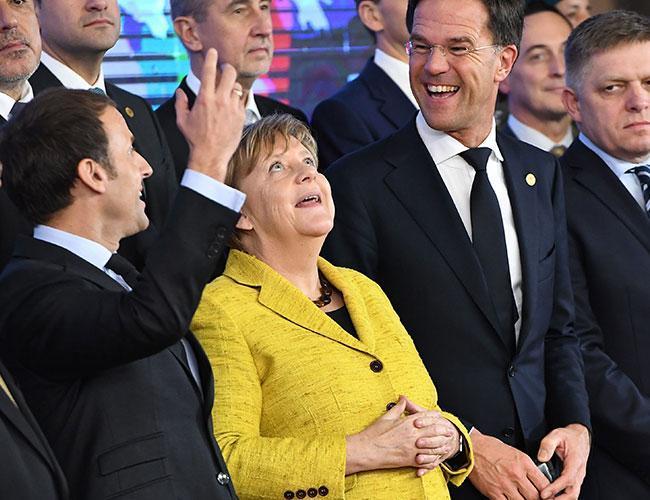
The European Union was set to move talks forward with London on Britain’s exit from the bloc as leaders warm to the British premier but there was little clarity on trade issues and Austria warned the Irish border issue remained a “riddle.”
On the second day of a summit in Brussels, leaders agreed on on citizens rights, the Irish border and Britain’s outstanding payments, giving negotiators a mandate to move onto the main phase of talks.
“We will give the mandate for preparation for the Commission and ourselves for the negotiations for the future of our relations,” Lithuanian President Dalia Grybauskaite said, seeing those talks formally starting in March.
A day after she suffered a defeat in parliament over her blueprint for quitting the EU, Prime Minister Theresa May won applause from her peers late on Dec. 14. She said she was on course to deliver Brexit and urged them to speed up the talks to unravel more than 40 years of membership.
But several hours later as leaders reconvened, European Commission President Jean-Claude Juncker and Italy’s Prime Minister Paolo Gentiloni warned that the hardest decisions were still to come as Britain tries to extricate itself from rules agreed over years in the bloc.
Austrian Chancellor Christian Kern went further, saying even a primary school student could see that the “first phase” deal on the Irish border would come back to haunt the talks because it was impossible for Britain to leave the bloc’s single market while avoiding a hard border on the island of Ireland.
“There cannot be any border controls between Northern and southern Ireland, there cannot be border controls between Northern Ireland and the UK, but there can between UK and the EU,” he said.
“So our primary school students can see that there is a riddle to be solved.”
As May left to return to London - she did not join the other 27 leaders for further discussions on Brexit and the euro zone - she said she was eager to move on.
The EU is willing to start talks next month on a roughly two-year transition period to ease Britain out after March 2019, but has asked for more detail from London on what it wants before it will open trade negotiations from March of next year.